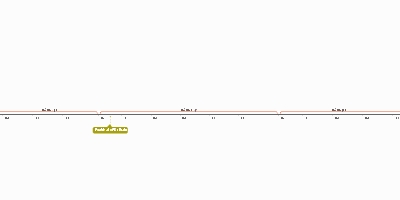Germany 1871 - 1991
Category: History
Updated: 3 months ago
Contributors
Created byisaac
Attachments
Events
Germany unified; Second Reich declared with Wilhelm I as Kaiser and Bismarck as ChancellorCatholic section of Prussian culture ministry closedMay Laws directed against Catholic Church in PrussiaFounding of the SAPD (Socialist Workers' Party) at GothaFounding of ReichsbankAssassination attempts on KaiserAnti-Socialist Law passedProtectionist laws passedSickness Insurance Law passed, beginning State SocialismWilhelm II becomes Kaiser (following brief reign of Friedrick III March - June)Bismarck dismissedSPD single most popular party in ReichstagNaval League foundedFirst German Naval LawDaily Telegraph AffairSocial Democrats largest party in ReichstagZabern Affair produces protests against the militaryGermany declares war on Russia then France and WW1 startsPrince Max becomes ChancellorKiel mutiny and workers' revolt; social distressDeclaration of Republic with Ebert Chancellor; Kaiser abdicates; ArmisticeSpartacist uprising amidst chaosEbert PresidentTreaty of Versailles signedWeimar constitution adoptedKapp Putsch failsCommunist risings in the RuhrHitler becomes Nazi leaderFrench invade the RuhrStresemann ChancellorHyperinflationMunich PutschCurrency reform and RentenmarkDawes Plan arrangedHindenburg becomes PresidentLocarno Treaties agreedGermany joins League of NationsYoung Plan agreedStresemann diesWall Street Crash in USA plunges world into DepressionBrüning rules Germany by presidential decreeNazis become second largest PartySocial disorder; street fighting with CommunistsSix million unemployedNazis gain 230 seats and become largest Reichstag partyNazis gain 196 seatsHitler appointed ChancellorReichstag fireReichstag elections; Enabling ActBoycott of Jewish shopsTrade unions and political parties bannedConcordat with Catholic ChurchGermany leaves League of NationsSA purged in Night of the Long KnivesHindenburg dies; Hitler becomes FührerConscription introducedNuremberg Laws persecute Jewish peopleStart of Four Year Plan to prepare Germany for warHimmler in charge of SS, SD and GestapoHitler Youth becomes official movementBerlin OlympicsHitler purges army of leadershipKristallnacht sees Jewish property and synagogues attackedMembership of Hitler Youth compulsoryGermany invades Poland; WW2 begins'Total War' measures are implementedWannsee Conference: SS established extermination campsStauffenberg attempts bomb plot against HitlerHitler commits suicideGermany surrenderPotsdam ConferenceNuremberg trials beginCaprivi appointed ChancellorHohenlohe appointed ChancellorBülow appointed ChancellorBethmann-Hollweg appointed ChancellorStart of KulturkampfEnd of KulturkampfEulenberg outed by HardenImpact of WW1 on the German economyTreaty of Rapollo agreedTreaty of BerlinKellogg-Briand PactSocial and economic impact of WW2 on GermanyAllied attitudes to the German peopleZones of occupationDenazificationEstablishment of Soviet zoneCreation of the BizoneCreation of the TrizoneMarshall Plan announcedCurrency reform in the western zonesStart of soviet blockade of Berlin/Berlin AirliftEnd of Berlin Blockade/AirliftFRG formed with a new constitutionAdenauer (CDU) becomes Chancellor following electionsEstablishment of GDRLaw on co-determination in steel and coalmining industriesBuilding of the Berlin WallAdenauer resigns and is replaced by Erhard (CDU) as ChancellorFormation of Grand coalition under KiesingerStudent protests and shooting of Red RudiWilly Brandt (SPD) elected ChancellorBasic Treaty between FRG and GDR signedStart of global oil crisisSchmidt (SPD) becomes ChancellorMogadishu incidentBaader-Meinhof terrorismKohl (CDU) becomes Chancellor in FRGBerlin Wall opensGDR joins FRG to create a united GermanyFirst all-German elections heldBundestag votes to transfer government in BerlinGodesberg ProgrammePolitical parties of the FRG1957 Election: Adenauer (CDU) victoryAdenauer's fallDer Spiegel AffairReasons for 1950s economic growth1960s economy1970s economy1982-89 economy50s attitudes towards Nazism60s attitudes towards Nazism70s attitudes towards Nazism80s attitudes towards Nazism50s standards of living60s standards of living70s standards of living80s standards of livingOccupation standards of livingPosition of women 1949-1989Position of youth 1949-1989Kohl's 10-point plan announcedDresden speech by Kohl in the GDRCurrency reformFormation of the USPD at GothaMerger of SPD and USPD1871 Tariff ActEbert-Groener PactStinnes-Liegen agreementWeimar Republic ProblemsWeimar economy up to 1929Hottentot electionTurnip WinterEmergence of the 'Silent Dictatorship'Periods
Bismarckian GermanyWilhelmine GermanyWeimar RepublicThird ReichFRGOccupation
Comments